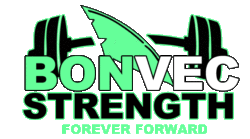 Sunday was brutal. The Patriots have held my heart hostage every week this season, but by the end of the regular season, I’d grown used to Tom Brady waiting til the final minutes to pull off some comeback magic and march to victory. So when the Pats were down 13-3 at the half, I wasn’t happy – but I wasn’t worried.
Sunday was brutal. The Patriots have held my heart hostage every week this season, but by the end of the regular season, I’d grown used to Tom Brady waiting til the final minutes to pull off some comeback magic and march to victory. So when the Pats were down 13-3 at the half, I wasn’t happy – but I wasn’t worried.
Two quarters later, I wasn’t happy.
But despite New England’s season coming to an end, I was reminded of an important lesson while watching Brady and Peyton Manning – two of the greatest quarterbacks of all time – duke it out to get to the NFL’s biggest stage.
Did you see Tom Brady’s 4th quarter touchdown run? It was like watching a newborn baby giraffe.
Even better, have you seen his NFL Combine highlights?
That dazzling display of athleticism proves that the best athletes aren’t always the most athletic.
Wait, what?
In the strength and conditioning community, we get obsessed with the black-and-white physicality of what we do. We believe whole-heartedly that, all other things equal, the stronger athlete is the better athlete. But when are all things EVER equal?
What’s the lesson I learned watching in agony as my Patriots got stymied? Athletes don’t really need strength coaches.
Let me clarify. That “all other things” thing we’re talking about is sport specific skill. Believe it or not, skill is WAY more important than strength when it comes to winning Super Bowls. Or World Series. Or PGA titles. Gold jacket, green jacket, who gives a shit?
I mean, look at Peyton Manning. We just put him on the ballot for greatest QB ever. Wanna know how much he benches? Not much. Just about every Average Joe Gymgoer I know can bench 80-pound dumbbells, but none of them can throw 55 touchdown passes in a season.
The bottom line is that lifting can do wonders for an athlete’s on-the-field performance, but truthfully, athletes have and always will reach the highest levels of performance without an ounce of proper strength training. That’s kind of a kick in the nuts for those of us who make a career out of helping athletes work out.
 Baseball is a fine example. Countless other sports have realized the value of strength and conditioning, but baseball players and coaches are still notoriously resistant to the notion that lifting weights and getting stronger are GOOD things. Ken Griffey Jr. openly admits he never lifted weights, yet hit 630 career home runs – the sixth-most of all time. Greg Maddux, the newest member of the MLB Hall of Fame, won four Cy Young Awards and was about as jacked as Betty White. And Tim Linecum, a pitching phenom who throws 95 mph despite weighing 170 pounds, throws gas more because of his INSTABILITY than the stability and strength he’d gain with a quality training program.
Baseball is a fine example. Countless other sports have realized the value of strength and conditioning, but baseball players and coaches are still notoriously resistant to the notion that lifting weights and getting stronger are GOOD things. Ken Griffey Jr. openly admits he never lifted weights, yet hit 630 career home runs – the sixth-most of all time. Greg Maddux, the newest member of the MLB Hall of Fame, won four Cy Young Awards and was about as jacked as Betty White. And Tim Linecum, a pitching phenom who throws 95 mph despite weighing 170 pounds, throws gas more because of his INSTABILITY than the stability and strength he’d gain with a quality training program.
The fitness industry is swollen with gigantic egos. One particular online feud comes to mind. A fairly well known bodybuilder and coach sued a YouTube fitness trainer for libel after a few years of constant online bickering. I won’t link to the feud here but it’s easy enough to find on your own if you really wanna sift through the nauseating details. But seriously, how did it even get to this point? How could someone let their ego grow so big that it detracts from the quality of coaching they can provide to their clients? Just shut your mouth, put your head down and HUSTLE.
Mike Guadango of DeFranco’s Gym and Mark Watts, current Director of Education at EliteFTS and former head strength coach at Denison University, have both written about the importance of humility in the fitness industry. We have to stop thinking of ourselves as the cornerstone instead of the mortar. A building will stand on its own without anything to hold its building blocks together, but it’s safer and better with something to seal the gaps. That’s the role of the strength coach. We don’t MAKE the athlete, but we can help fill in the gaps that skills alone can’t seal.
If we recognize that we don’t build the building, but rather help hold it together, we’d all be better coaches. A humble coach is one who’s always learning and always getting better at his or her craft. When this happens, it’s the athlete or the client who really wins.
Sometimes I have to remind myself of this harsh lesson. This is not an easy industry. Most people put in YEARS of volunteering and interning before they even land a full time job as a strength coach. So whenever I’m ready to complain, I gently tell myself that these athletes don’t really need me. But I’m awfully glad that they’ll listen to me anyways.


Pingback: Good Reads of the Week – (1/24) | BONVEC STRENGTH